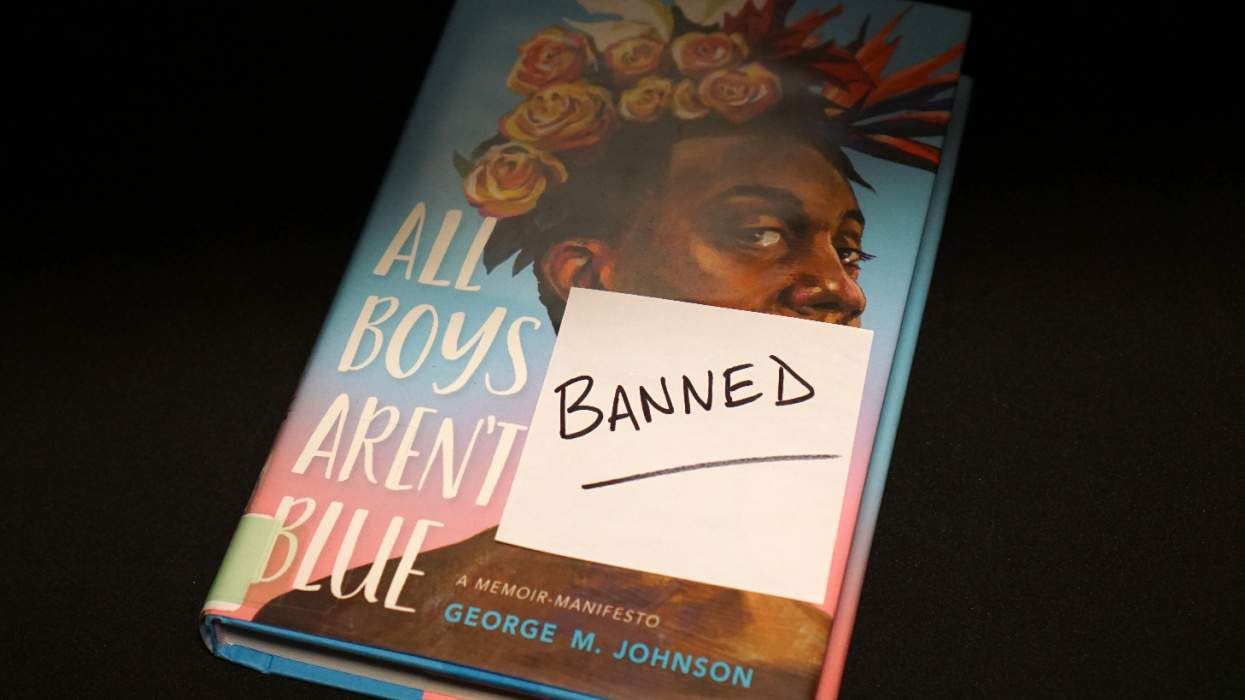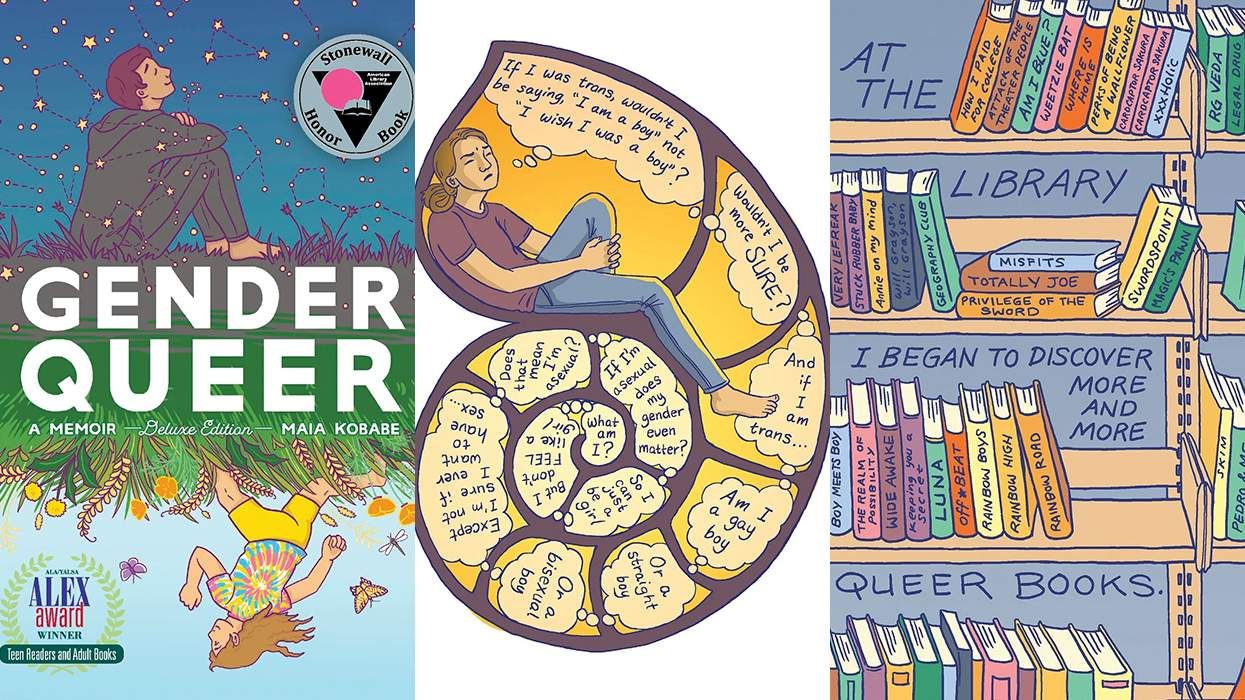Mary Cappello's memoir Called Back is a white-knuckle journey through the experience of cancer treatment in America -- especially disorienting to navigate as a woman and a lesbian. Her voice is lyrical, unguarded, and often ruefully funny. "Language matters," she remarks, "positive in cancer land means negative. Dear friends: please stop sending me positive thoughts."
Cappello is professor of English and creative writing at the University of Rhode Island. Her second collection of literary nonfiction, Awkward: A Detour, which includes an essay on awkwardness and eroticism in The L Word, was a Los Angeles Times bestseller.
Advocate.com: Reading Called Back, I thought about the Virginia Woolf essay, "On Being Ill," in which she writes of illness as a sort of underworld -- with an enforced silence and inactivity, a removal from life -- from which you return altered, but with intellectual and emotional riches. You get to bring treasure back with you. Does that resonate for you?
Mary Cappello: Absolutely, but I think that, with this particular illness and this particular writing, that was something I was experiencing while I was in it. It wasn't something I came out and reflected on. And that probably surprised me a little. There's nothing you can predict about this illness.
During it, I was put on high alert in a way, and that's probably something that happens to a lot of people. Your senses become sharpened. I was already in the writing zone. I was already poised to see things. It felt immediate and urgent and necessary, and I was responding to it in the moment. I can't imagine writing about all of that retrospectively. But that perceptual thing is very interesting to me. Your senses become heightened, and of course chemotherapy does bizarre things to your sensory apparatus -- it's a heightening and a dulling.
I was struck by a recurring situation in your book, as you describe your treatment. Hospital caregivers keep trying to place you. They can't figure out whether to check "married" or "single" on their forms. They're totally thrown by your sexuality, even though you have a longtime partner.
That comes up a lot. I'm shocked by how often even my most progressive doctors, on their data sheet, still don't have a space for domestic partner, or they ask questions that just presume heterosexuality, and that's a little shocking to me, at 2009.
We are in a different era, in a lot of ways. My partner was able to be present with me or for me in most of these scenarios. In fact, there was one male doctor who wanted her to be more warm and fuzzy, but she's very rational. They wanted her to play a role she didn't want to play.
- Called Back is in stores now from Alyson Books.
I found it poignant that the nurses and technicians felt this urge
to connect with you, to look for commonality, but they couldn't quite
find it with a lesbian. One woman tried to bond with you over your
shoes.
That's right! She really wanted me to come up with
some kind of heteronormative identity she could relate to. And she had
a checklist! Do you have kids? Do you have pets?
Everyone knows
that illness is isolating. That's why there's this emphasis on the
walks and the groups. There's a profound solitude when you're dealing
with harrowing procedures and your own mortality. I don't think it's a
bad thing. We all have to reckon with it as human beings. But it
doesn't help when you're already at a remove from the world by being
sick and that is doubled or tripled by other factors, like your
sexuality.
You describe some moments of connection or bridging with your fellow cancer patients.
When you're in those waiting rooms, there's definitely a falling away
of who you are. We don't know anything about each other except that we
have cancer. This is what we have in common. It's a kind of leveling
device. I don't want to say that people's prejudices and bigotry fall
away, because that would be to idealize these situations.
Tell me about the genesis of this book. It's so strange that you were
researching collections at the Mutter Museum of medical curiosities
when you were diagnosed with cancer.
My mother lives near
the Mutter Museum in Philadelphia, and I don't know why I had never been
there. I rounded the corner and opened this set of drawers and there
was a collection of things people had swallowed or ingested. They were
all removed by a famous laryngologist, Chevalier Jackson. I started to
think there was a book to be written about that collection. I have a
fascination with this material. I think I've always been a frustrated
doctor, on some level.
Then I discovered an elderly woman named
Margaret Derryberry who called the Mutter Museum because she had
ingested a hat pin as a child. It had been removed at one of the
Jackson clinics, and she wanted to find it. Jackson always insisted on
keeping the objects, but people become attached to these objects! She
felt cut off from this traumatic experience. And she was coming to the
end of her life, and maybe this is something we want to do, to resolve
earlier problems.
She was thrilled that I was interested in her story. I interviewed her in May and got my diagnosis in June.
When I began treatment, I knew I had to move away from the Jackson
material temporarily, but the Jackson work helped me cope with the
total immersion in the medical world I had to embark on -- from the
surgery to the port installation to the chemotherapy. I'm convinced
that because I was steeped in this work, it made it easier for me to
deal with the cancer. And then when I came back to the Jackson
material, I had a new and deeper appreciation for it.
- Called Back is in stores now from Alyson Books.
How did Called Back begin to shape itself in your mind?
I probably imagined I would write an essay about diagnosis. That's how
it started -- the relationship between reading the world and your cancer
becoming legible. And after I wrote that, I was embarking on surgery
and there was a lot to notice there. And the material just came
out -- pouring -- there's no dearth of material. You think about each of
these aspects of treatment -- each is its own new world. There are books
inside each of these.
I think about being inside the experience.
It's a very turbulent place. But we're not expected to be angry. That's
not the collective discourse around cancer -- that's very monochromatic
and sentimentalized and pink. And we're not being mobilized around
environmentalism and prevention. We might be enraged and we should be
enraged. We are the victims of environmental disaster.
How did you discover your cancer?
I was reading [laughs]. I was reading in bed, and I can't remember
what the book was, and one hand was resting on my chest. I just happened
to touch that part of my chest and something didn't feel right. I've
heard since that you're more likely to find these lumps when you're
relaxed. So ... there's another reason to reduce stress. So you can find
your breast cancer more easily.
- Called Back is in stores now from Alyson Books.















Charlie Kirk DID say stoning gay people was the 'perfect law' — and these other heinous quotes
These are some of his worst comments about LGBTQ+ people made by Charlie Kirk.